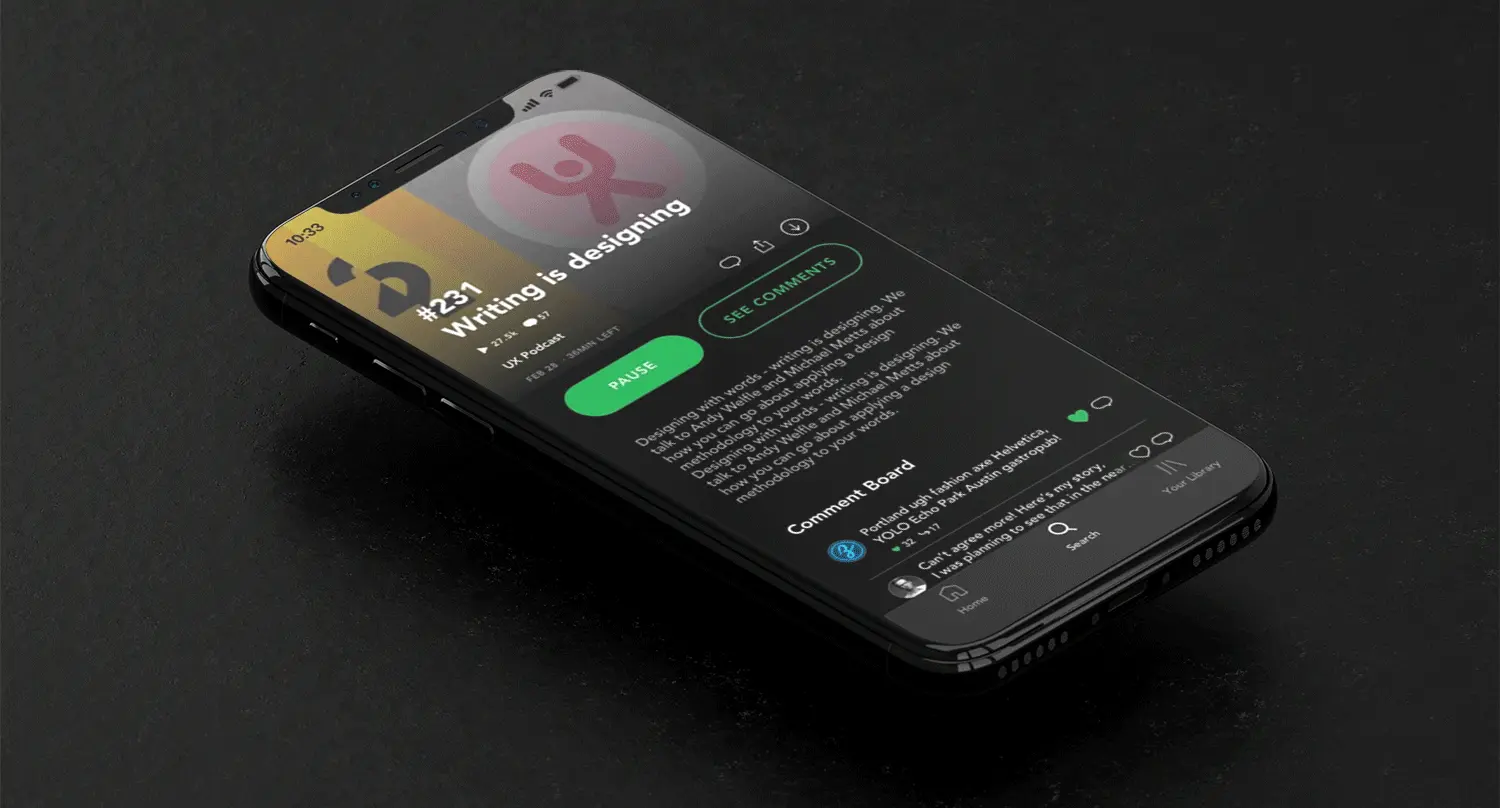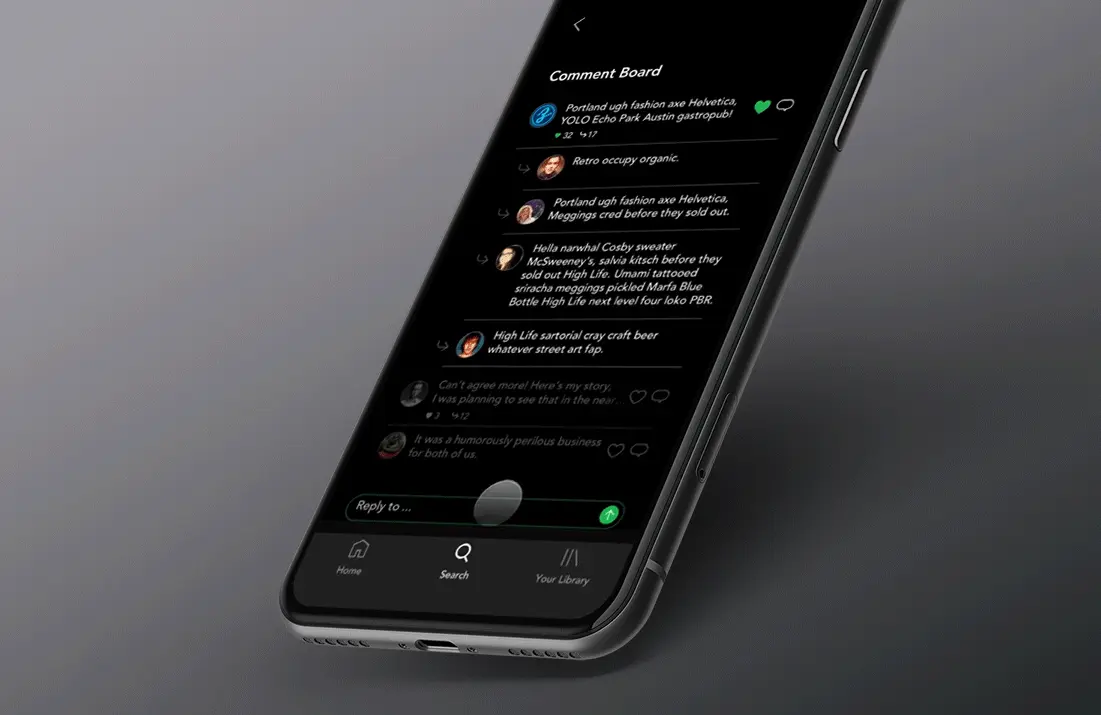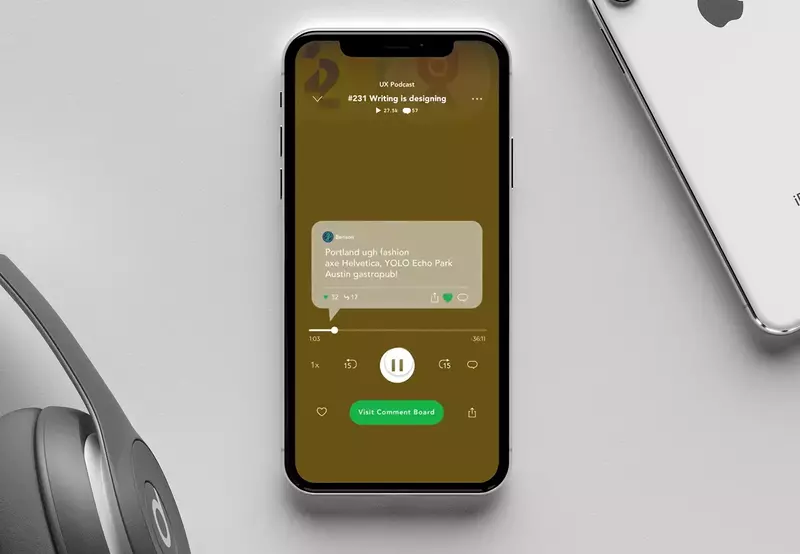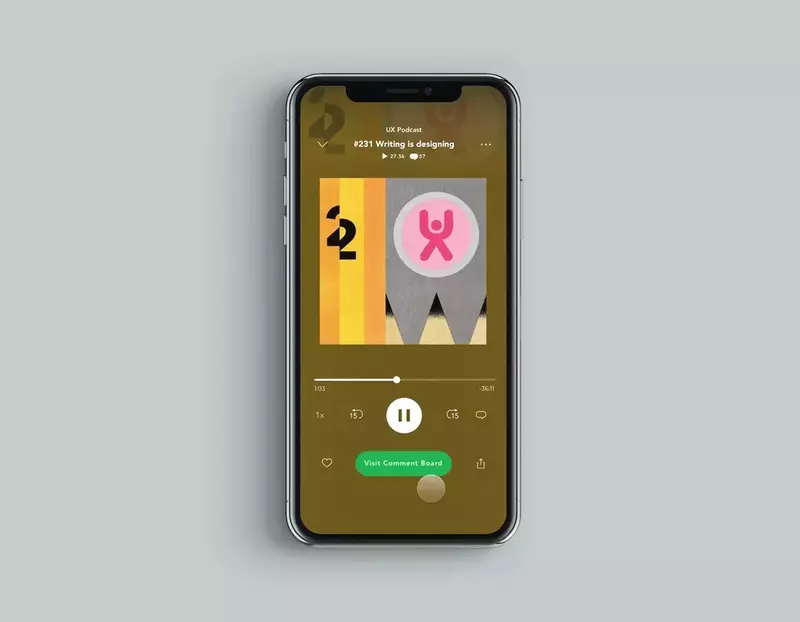01 | Comment board for conversations
I proposed the implementation of a comment board to facilitate seamless in-app engagements. Additionally, by displaying the number of comments and listeners on the preview page, it becomes easier to identify the most popular episodes and shows.

Improving accessibility: Joining the community
For newcomers, navigating fragmented conversations can be confusing. The comment board serves as a helpful guide, providing a path to understanding the context. This not only reduces the likelihood of unclear exchanges but also fosters a more welcoming environment for those entering a new community.

02 | Pop-ups for screenless playing
Podcasts often play during screenless moments. To introduce users to the comment board, selected comments can pop up while the podcast is playing. This sneak peek into the ongoing dialogue encourages active participation.

Promoting dialogue
By presenting comments in the form of dialogue boxes, we signal that responses are encouraged. This simple feature motivates users to initiate conversations, strengthening connections and facilitating the formation of new friendships within the community.

Seamless access
To further enhance engagement, a clear call-to-action button is provided. This ensures that users can effortlessly join the conversation, contributing to the vibrancy of the podcast community.
